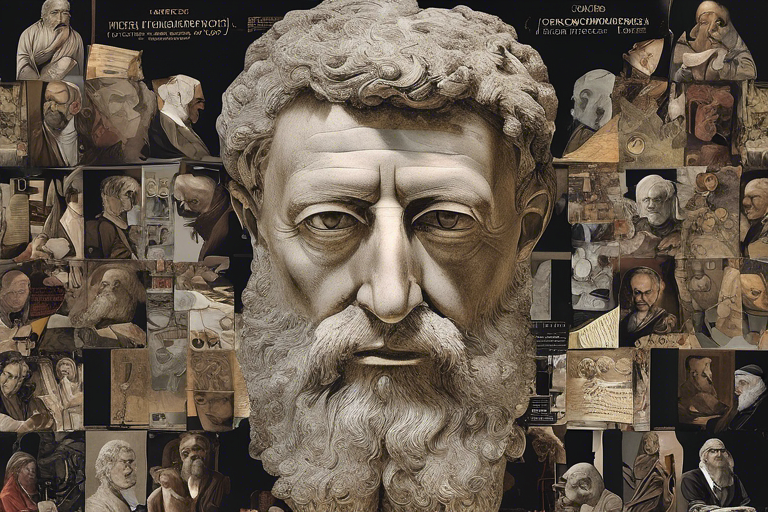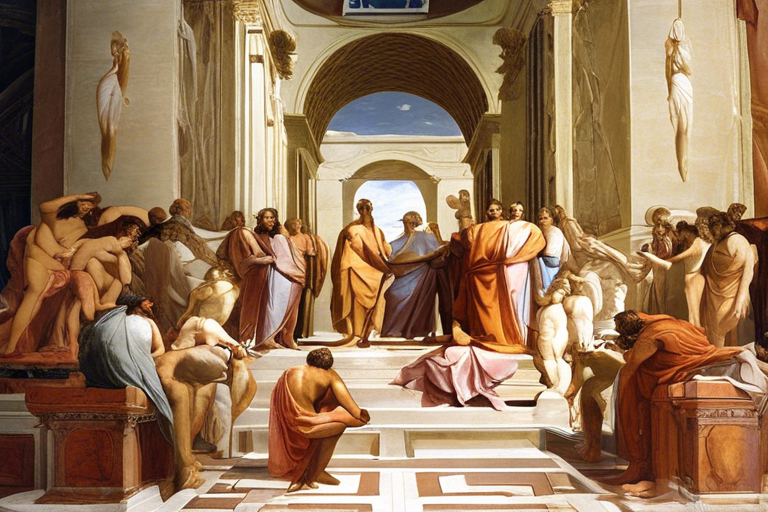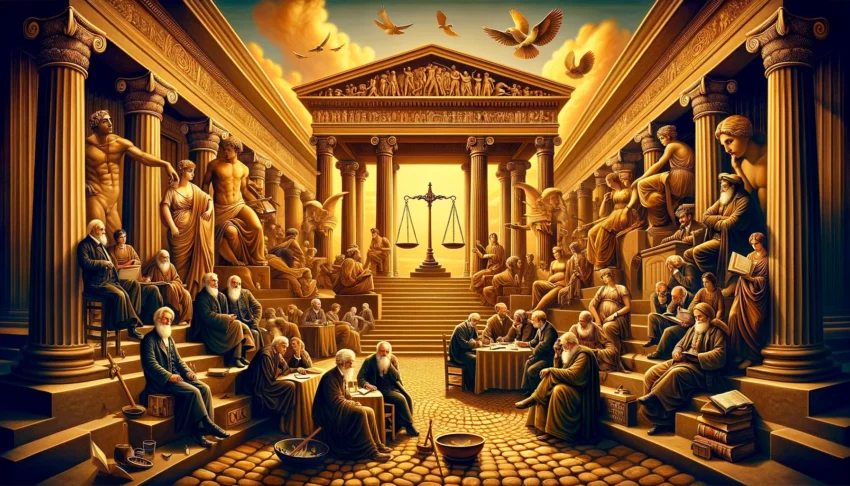In today’s lightning-fast startup world, founders are bombarded with pressure to constantly chase the next big thing. It’s a relentless cycle of hustle culture and instant gratification, often at the expense of building brands with lasting impact. At Pragmatic Philosopher, we believe there’s a better way. We see wisdom not as something confined to dusty…
Forging Your Path: How Stoicism Can Guide Your Mission and Vision
The startup world is a seductive siren song. It beckons with tales of overnight success, groundbreaking innovation, and unimaginable riches. But the reality, for most founders, is far less glamorous. It’s a relentless ocean, filled with treacherous currents of competition. Markets shift like sandbars, leaving your carefully laid plans stranded. The weight of expectation, from…
Stoic Frugality: Building a Startup Empire on Less
The Startup Hunger Games: Burn Rate or Bust? Imagine a high-stakes arena where every decision is a life-or-death gamble. That’s the pressure cooker environment many startups find themselves in. Investors throw around terms like “burn rate” like a badge of honor, and securing the next funding round becomes the sole focus. The message is clear:…
Building Resilience: The Stoic Founder’s Secret Weapon
The startup journey is exhilarating but fraught with peril. Founders face a relentless barrage of challenges – from product pivots and funding roadblocks to team conflicts, market downturns, and the ever-present threat of burnout. In this pressure cooker environment, resilience is the key ingredient for long-term success. Here at Pragmatic Philosopher, we believe Stoicism offers…
The Essence of Modern Philosophy: Exploring New Perspectives
Introduction In the realm of philosophy, the term “modern” often conjures up images of complex and indecipherable texts, stuffy scholars, and outdated ideas. However, there is a hidden treasure trove of modern philosophy books that offer fresh and nuanced perspectives on the world we live in. These books challenge conventional wisdom, ignite curiosity, and invite…
An Introduction to Medieval Philosophy
Introduction Medieval philosophy, also known as philosophy during the Middle Ages, is a fascinating subject that emerged in the period following the fall of the Western Roman Empire in the 5th century and continued until the Renaissance in the 13th and 14th centuries. During this time, philosophy faced challenges from religious faith, leading medieval philosophers…
Leading Contemporary Philosophers To Read in 2024
Contrary to popular belief, philosophy has not remained stagnant since the time of Plato, Aristotle, Kant, and Hegel. It continues to thrive, generating remarkable works known for their precision, depth, and diversity. From disciplines like modal epistemology to more mainstream areas such as feminism and ethics, contemporary thinkers are contributing to the finest accomplishments of…
The Impact of Pre-Socratic Philosophy
Pre-Socratic philosophy, also known as Early Greek Philosophy, refers to the philosophical tradition that predates Socrates in ancient Greece. These early philosophers were primarily concerned with cosmology, delving into the origins and nature of the universe. However, their inquiries extended beyond the natural world to encompass topics such as human society, ethics, and religion. Notably,…
Political Philosophy Books: Navigating the Foundations of Governance and Society
Political philosophy books offer profound insights into the principles that underpin societies, the nature of justice, the legitimacy of governments, and the best ways to organize human communities. These texts not only dissect theoretical constructs but also address practical implications, making them essential for anyone interested in the deeper aspects of governance, ethics, and societal…
Groundwork of the Metaphysics of Morals: A Comprehensive Overview
Key Takeaways: Introduction to Kant’s Moral Philosophy Immanuel Kant’s “Groundwork of the Metaphysics of Morals,” first published in 1785, is a cornerstone of modern moral philosophy. Kant embarked on this work to lay bare the fundamental principle of morality and demonstrate its applicability to rational beings. His introduction of the categorical imperative was a direct…









